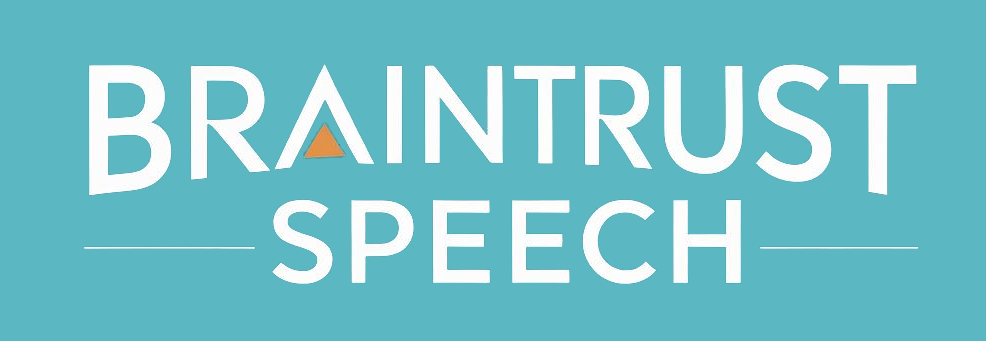BrainTrust Speech Therapy Services
-
It all begins with an idea. Maybe you want to launch a business. Maybe you want to turn a hobby into something more.
-
It all begins with an idea. Maybe you want to launch a business. Maybe you want to turn a hobby into something more.
-
I specialize in the following areas:
Traumatic Brain Injury (TBI)
Mild Cognitive Impairment (MCI)
Individual Therapy Sessions
-
Speaking
Listening / Comprehension
Reading
Writing
-
Attention
Memory
Executive Function
Processing Speed
-
Dysarthria (slurred speech due to muscle weakness)
Apraxia (inconsistent speech due to breakdowns in motor planning or coordination)
-
Breath support
Vocal loudness
Vocal fatigue
Parkinsonian-related voice disorders
Comprehensive assessment and ongoing personalized treatment for clients who have neurologically-based changes in any of the following areas:
BrainTrust Boot Camp
An intensive short-term program designed to enhance neuroplasticity during the critical recovery phase following a neurological event, such as stroke, traumatic brain injury, or neurosurgery.
The spontaneous recovery phase typically occurs within the first six months after injury and is characterized by rapid neurological improvement as the brain begins to heal.
Conclusive research demonstrates that engaging in intensive speech therapy during this critical window can maximize the brain’s ability to reorganize and form new neural connections, leading to better long-term outcomes.
MCI Comprehensive Care
In-depth orientation and personalized treatment for clients with Mild Cognitive Impairment (MCI).
Sessions cover essential topics, including common trajectories of different MCI subtypes, risk factors that can influence a progression to dementia, and effective strategies to promote healthy brain aging.
Treatment emphasizes attention, memory, and executive function skills in order to help clients stay focused and engaged, recall important information, and navigate daily challenges at work and at home.
Dementia Care Support
Participants will gain essential tools and strategies to foster a positive caregiving experience centered on safety, emotional well-being, and connection.
Partner and Family Training
-
Families often underestimate the challenges associated with bringing a loved one home after a neurological event. Family training can equip caregivers with essential strategies to foster a smooth adjustment and make the home a place of healing.
-
Families often underestimate the challenges associated with bringing a loved one home after a neurological event. Family training can equip caregivers with essential strategies to foster a smooth adjustmBnt and make the home a place of healing.
-
While individuals with nonverbal aphasia can greatly benefit from direct therapy, family training is equally vital in enhancing communication, ensuring that every family member feels heard, valued, and supported.
-
In cases of neurological decline, effective energy conservation is essential for maintaining quality of life. This can involve shifting from direct therapy with the client to skills-training for family members to maintain ongoing connection and emotional support.
Sometimes the most effective care approach is to focus on short-term family training rather than direct therapy for the person with neurological changes. This is particularly true in cases where the loved one has limited capacity to engage in therapy.
Lee Silverman Voice Treatment (LSVT)
LSVT LOUD is the global “gold standard” treatment for individuals with voice and speech disorders related to Parkinson’s disease.
Conclusive research has documented its efficacy in improved vocal loudness, speech clarity, and overall communication. Moreover, results have been shown to have lasting results.
LSVT-LOUD is a short-term, highly structured program. Clients must be able to commit to 1-hour sessions, 4 days per week, for 4 consecutive weeks total.

